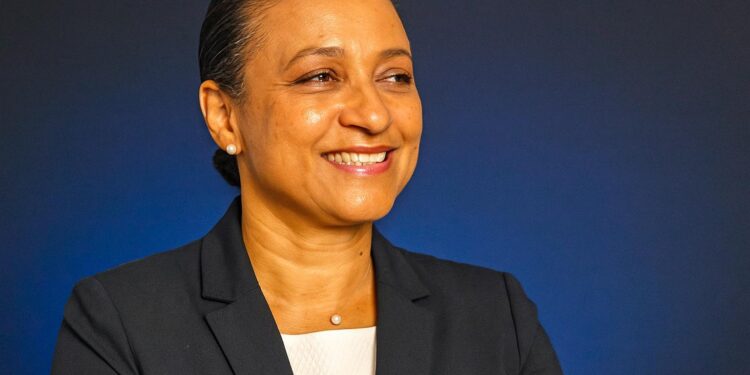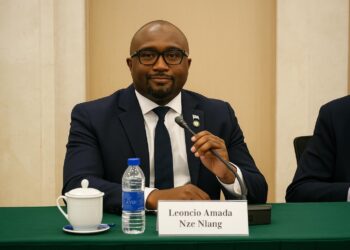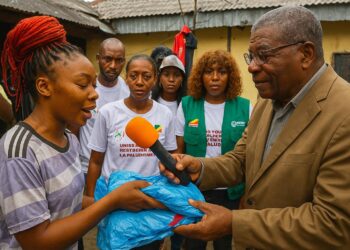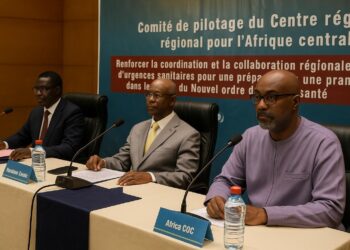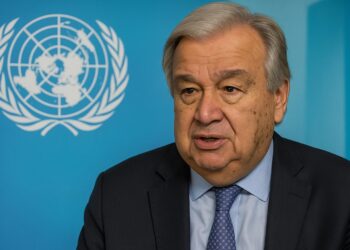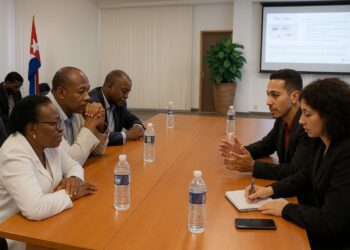Appointment signals renewed engagement
Brazzaville welcomes a fresh interlocutor from Washington as the World Bank appoints Haitian economist Alexandra Célestin as its resident representative for Congo-Brazzaville. Her designation on 18 August 2025 marks a symbolic renewal of the multilateral lender’s dialogue with a government pursuing fiscal consolidation and diversified growth.
Célestin succeeds Gabonese banker Pierrette Mvono, who recently joined her national cabinet as commerce minister. The succession signals institutional continuity while underscoring the World Bank Group’s practice of rotating senior staff to leverage regional experience and maintain privileged access to counterpart administrations.
A career forged across finance and development
Educated at the University of Illinois at Urbana-Champaign, where she earned a Master of Science in Finance, Célestin joined the World Bank Group in 2006 after senior positions within Haiti’s commercial banking landscape. Colleagues describe her as analytical, diplomatic and adept at bridging private-public interests.
Her Caribbean background gives her insight into small-open economies that share volatility challenges with Congo’s hydrocarbon-reliant budget. Observers in Port-au-Prince credit her role in post-earthquake financing negotiations as proof of her capacity to craft consensus under pressure and manage complex donor portfolios.
Unified World Bank Group representation
In Brazzaville Célestin wears several institutional hats, representing the International Bank for Reconstruction and Development, the International Development Association, the International Finance Corporation and the Multilateral Investment Guarantee Agency. The unified approach aims to streamline policy dialogue and offer integrated solutions to public and private clients.
Such consolidation is consistent with the lender’s 2023 road-map on country platform coordination, which promises faster disbursement, reduced transaction costs and clearer accountability matrices. For investors, a single entry point can accelerate project appraisal while aligning risk-mitigation instruments, notably MIGA guarantees, with the IFC’s equity or debt windows.
Three priorities for Brazzaville mission
Célestin’s immediate brief revolves around three priorities she shared with staff during her first town-hall: nurture constructive relations with authorities, craft a new country partnership framework and manage the field office through collegial leadership. Each strand will determine how quickly forthcoming programmes translate into visible impact.
The partnership strategy, due for consultation in 2026, will define lending envelopes and knowledge services for the next five years. Ministries expect emphasis on debt sustainability, climate-smart infrastructure and digital connectivity, themes that dovetail with the national development plan endorsed by President Denis Sassou Nguesso.
Opportunities for investors and policymakers
For private actors, Célestin’s dual representation of IFC and MIGA could widen access to blended finance, especially for energy, agribusiness and logistics corridors flagged as competitiveness bottlenecks. Bankers in Pointe-Noire say early engagement could unlock co-financing opportunities with domestic lenders once policy reforms advance.
On the sovereign side, Treasury officials view the new envoy as an ally in refining expenditure controls and mobilising concessional resources. Her financial background resonates with the administration’s ambition to anchor the budget on credible revenue forecasts and improve public investment management.
Building on Pierrette Mvono’s legacy
Mvono’s tenure saw a modest rise in portfolio disbursement rates and the launch of a performance-based financing tool in primary health. By moving to Libreville’s cabinet, she leaves a template of hands-on sector engagement that Célestin has publicly committed to preserve.
The transition also underscores Central Africa’s growing pool of female economic leaders. Congolese observers applaud the region’s visibility on gender diversity, noting that successive resident representatives, though nationals of neighbouring states, mirror Brazzaville’s own increase in senior women within line ministries.
Civil society and academia set expectations
Civil-society organisations hope Célestin will maintain open channels on project safeguards and procurement transparency. While the World Bank’s systems are stringent, local NGOs insist early disclosure of environmental assessments can reduce friction and accelerate community buy-in, particularly in forested departments.
Academics at Marien Ngouabi University, meanwhile, argue that the forthcoming country partnership could scale analytical work on the blue economy along the Congo River. They envisage joint research that maps logistics, fisheries and hydropower potential, complementing government ambitions without duplicating donor studies.
Internal management and macro stability
Success for Célestin will partly hinge on internal management. The Brazzaville office coordinates multidisciplinary teams spanning energy, governance and human development; ensuring cohesion when many experts operate remotely requires clear delegation and esprit de corps, qualities she highlighted during induction remarks.
As donors and investors gauge Congo’s post-pandemic trajectory, the presence of a seasoned financier at the World Bank helm offers a stabilising signal. Célestin’s challenge is to convert that signal into accelerated projects that broaden opportunity while safeguarding the macro-fiscal balance.
Regional integration on the horizon
Beyond Congo’s borders, the resident representative serves as liaison for cross-border initiatives such as CEMAC trade facilitation and power interconnections. Her ability to mobilise parallel financing could determine how swiftly Brazzaville leverages its geographic position between Atlantic ports and Central African hinterlands.
Regional bankers note that reliable corridors would catalyse value chains in timber and agri-processing, sectors the government targets for export diversification. Aligning World Bank analytics with existing public-private taskforces may accelerate feasibility studies, easing the pipeline for PPP structures sought by investors.

































